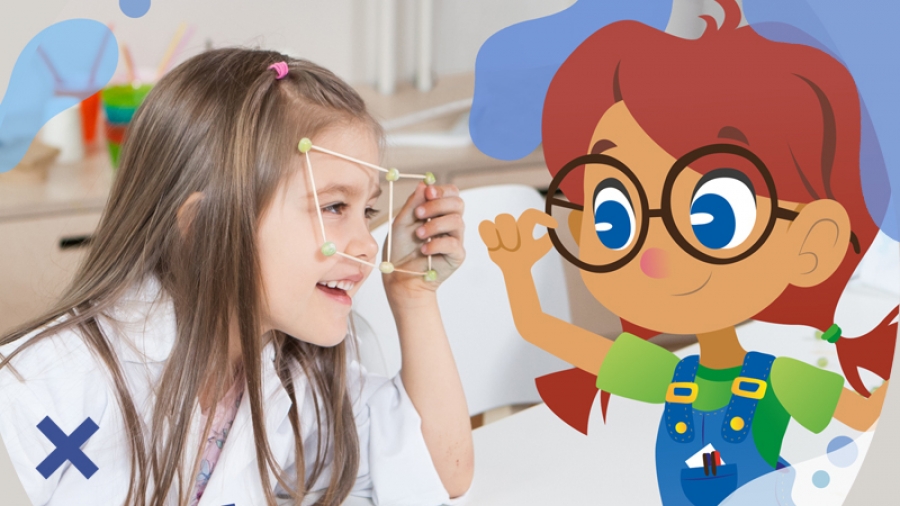Not much, you might think, because those are products of the imagination, and science is all about the real world. However, imagination-driven elements are vital in early science education. By relying on children’s imagination and natural curiosity, we create space for children to form their own scientific identity, which is crucial to making science approachable and accessible to those that are culturally excluded from our common conceptions of scientists.
There’s an open question among science educators: do we teach science to create scientifically literate adults capable of critical thinking, or do we teach science just to create future scientists? Most educators believe that we teach science for everyone, but society still perpetuates stereotypes about who can be a scientist. We’ve made strides, but overwhelmingly, the notion that a proper scientist is a middle-aged man with poor social skills continues to be the default. That excludes a lot of people and reduces the diversity of backgrounds and approaches.
More to the point, young people are often considered incapable of doing science. This is exacerbated among children in non-dominant communities and those from socioeconomically disadvantaged backgrounds. Those students typically don’t have equal opportunities to engage in science activities and to develop their scientific identity. Science education desperately needs approaches that help every child understand that they can be capable of learning science and building scientific identity.
The concept of “scientific identity” refers to the idea of one thinking that they are capable of learning science and acting in science-related environments. Scientific identity strongly defines how we develop and what kind of careers we aim for. It shapes what we believe is possible for ourselves. To make a scientific identity accessible to more children, we need to understand and respect children’s cultures.
The idea that we should approach science education via children’s interests is not new, nor incorrect. We should. However, often these interests are used solely as a bridge to get them to accept the popular scientific culture that we’re seeking to broaden, and scientific practices remain unattached to children’s culture. Merging science with activities and interests that are natural for a child makes science meaningful in a way that helps fuse the child’s identity with scientific capability. Anyone can be a scientist.
Dramatic play is an effective way to sprinkle science into the world of children. In the play, children reproduce cultural practices they have encountered in different contexts like home, nursery school, and Primary school. If we allow children to act in a play-based science learning environment in dramatic roles, we let children bring their cultural backgrounds into the science learning context. The dramatic role of a scientist allows a child to test how the role of a scientist looks like through the lens of their personality and culture. By combining play with early science education we have the potential to knock down limiting stereotypes of who is capable of being a scientist.
Kide Science has created a research-based pedagogical model to support early science education and the development of children’s scientific identity across cultures. The beauty of Crystal Cities and Wonder Machines is that they’re inclusive, and we allow children to bring their own contexts to the activities. The Kide model builds a play-world where children are real scientists that solve problems coming from a planet called Supraland in a distant galaxy. Children use science skills to restore Crystal City and build Wonder Machines that reduce CO2, and in doing so they learn about scientific concepts such as electricity, solubility, density, and optics, and overarching science process skills like making observations, measuring, and concluding. Rather than adapt children to the world of science, we adapt science to the world of children. This way, every child learns that they are capable of being a scientist.
To experience the Kide Science pedagogy and play-based science activities, you can sign up for a free trial.
![]() Looking for more resources to support your teaching and learning? Check out the best education technology resources on our sister platform EdTech Impact.
Looking for more resources to support your teaching and learning? Check out the best education technology resources on our sister platform EdTech Impact.


















